HGH-FRAG (176-191)
HGH Fragment 176-191, also known as HGH Frag 176-191, is a synthetic peptide consisting of amino acids 176 to 191 of the human growth hormone (hGH) sequence. This specific fragment has been studied for its potential lipolytic (fat-reducing) properties. It is supplied in liquid form with a purity level of ≥99%, making it suitable for in-vitro and laboratory research applications.
$44.99
In stock
Overview
HGH Fragment 176-191 is under investigation for its potential role in modulating fat metabolism. Research suggests that this fragment may influence lipolysis and lipogenesis, processes involved in the breakdown and formation of fat, respectively.
Product Research
-
Lipolytic Activity in Obese Models
Studies have demonstrated that a synthetic peptide analogous to HGH Fragment 176-191, known as AOD9604, exhibits lipolytic and antilipogenic activity similar to that of the intact hormone. In rodent models of obesity, oral administration of AOD9604 resulted in reduced body weight gain without affecting food consumption. This effect was attributed to increased lipolytic activity and decreased lipogenic activity in adipose tissue. [1]
-
Interaction with Beta-Adrenergic Pathways
Research indicates that both hGH and its C-terminal fragment AOD9604 can induce weight loss and enhance lipolytic sensitivity in obese mice. These effects may be mediated through interactions with beta-adrenergic receptors, particularly the beta(3)-adrenergic receptors, suggesting a mechanism by which these peptides influence fat metabolism. [2]
-
Metabolic Effects in Obese Rats
A study involving obese Zucker rats investigated the metabolic actions of AOD9604, a synthetic analogue of the lipolytic domain of hGH. Daily oral treatment with AOD9604 significantly reduced body weight gain and increased lipolytic activity in adipose tissues, indicating potential metabolic benefits in obesity research. [3]
-
Potential in Cancer Research
In silico analyses have suggested that the addition of the hGH fragment to doxorubicin-loaded chitosan nanoparticles can enhance doxorubicin binding to multiple breast cancer protein targets. Synthesized dual-loaded chitosan nanoparticles demonstrated greater anti-proliferative activity against a breast cancer cell line (MCF-7) than doxorubicin-loaded chitosan alone, indicating a potential role for hGH fragments in enhancing anticancer drug delivery. [4]
Disclaimer
This product is intended for laboratory research and development purposes only. It is not approved for human consumption, medical, or veterinary use. All information provided is for scientific reference only. Use under the supervision of qualified professionals in appropriate research settings.
Referenced Citations
- Effects of oral administration of a synthetic fragment of human growth hormone on lipid metabolism in obese Zucker rats – PubMed
- The effects of human GH and its lipolytic fragment (AOD9604) on body composition of obese mice – PubMed
- Metabolic studies of a synthetic lipolytic domain (AOD9604) of human growth hormone in obese Zucker rats – PubMed
- Human Growth Hormone Fragment 176–191 Peptide Enhances the Toxicity of Doxorubicin-Loaded Chitosan Nanoparticles Against MCF-7 Breast Cancer Cells – PubMed
Related Products
Overview
HGH Fragment 176-191 is under investigation for its potential role in modulating fat metabolism. Research suggests that this fragment may influence lipolysis and lipogenesis, processes involved in the breakdown and formation of fat, respectively.
Product Research
-
Lipolytic Activity in Obese Models
Studies have demonstrated that a synthetic peptide analogous to HGH Fragment 176-191, known as AOD9604, exhibits lipolytic and antilipogenic activity similar to that of the intact hormone. In rodent models of obesity, oral administration of AOD9604 resulted in reduced body weight gain without affecting food consumption. This effect was attributed to increased lipolytic activity and decreased lipogenic activity in adipose tissue. [1]
-
Interaction with Beta-Adrenergic Pathways
Research indicates that both hGH and its C-terminal fragment AOD9604 can induce weight loss and enhance lipolytic sensitivity in obese mice. These effects may be mediated through interactions with beta-adrenergic receptors, particularly the beta(3)-adrenergic receptors, suggesting a mechanism by which these peptides influence fat metabolism. [2]
-
Metabolic Effects in Obese Rats
A study involving obese Zucker rats investigated the metabolic actions of AOD9604, a synthetic analogue of the lipolytic domain of hGH. Daily oral treatment with AOD9604 significantly reduced body weight gain and increased lipolytic activity in adipose tissues, indicating potential metabolic benefits in obesity research. [3]
-
Potential in Cancer Research
In silico analyses have suggested that the addition of the hGH fragment to doxorubicin-loaded chitosan nanoparticles can enhance doxorubicin binding to multiple breast cancer protein targets. Synthesized dual-loaded chitosan nanoparticles demonstrated greater anti-proliferative activity against a breast cancer cell line (MCF-7) than doxorubicin-loaded chitosan alone, indicating a potential role for hGH fragments in enhancing anticancer drug delivery. [4]
Disclaimer
This product is intended for laboratory research and development purposes only. It is not approved for human consumption, medical, or veterinary use. All information provided is for scientific reference only. Use under the supervision of qualified professionals in appropriate research settings.
Referenced Citations
- Effects of oral administration of a synthetic fragment of human growth hormone on lipid metabolism in obese Zucker rats – PubMed
- The effects of human GH and its lipolytic fragment (AOD9604) on body composition of obese mice – PubMed
- Metabolic studies of a synthetic lipolytic domain (AOD9604) of human growth hormone in obese Zucker rats – PubMed
- Human Growth Hormone Fragment 176–191 Peptide Enhances the Toxicity of Doxorubicin-Loaded Chitosan Nanoparticles Against MCF-7 Breast Cancer Cells – PubMed
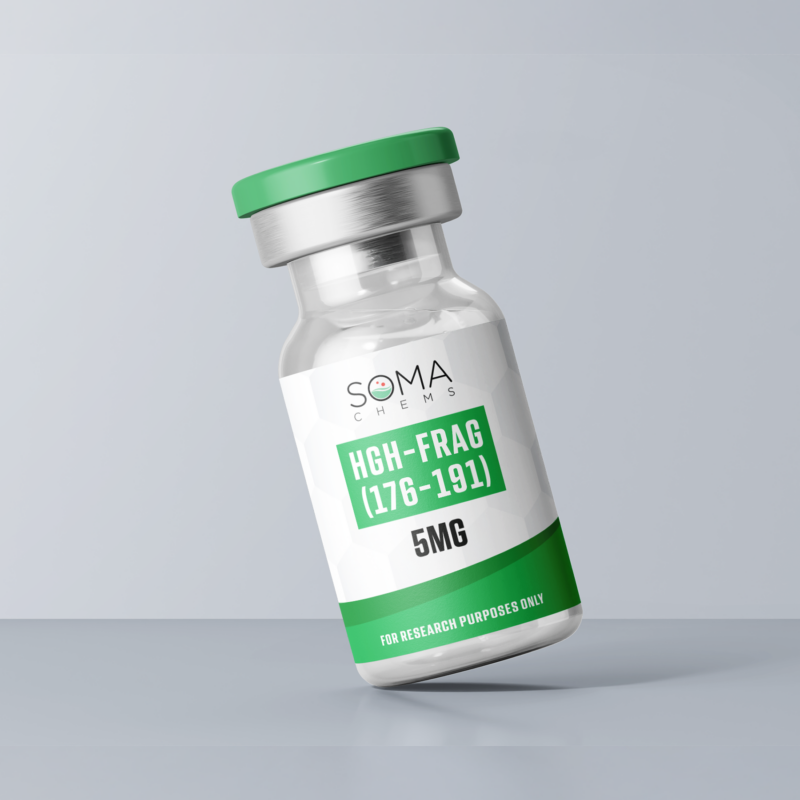
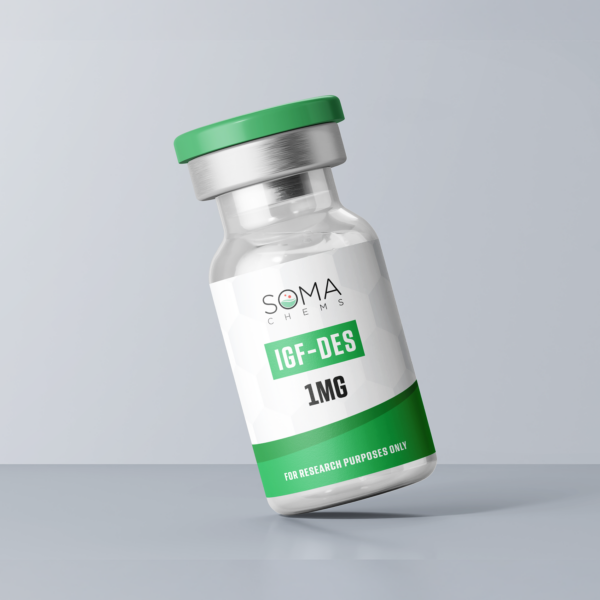
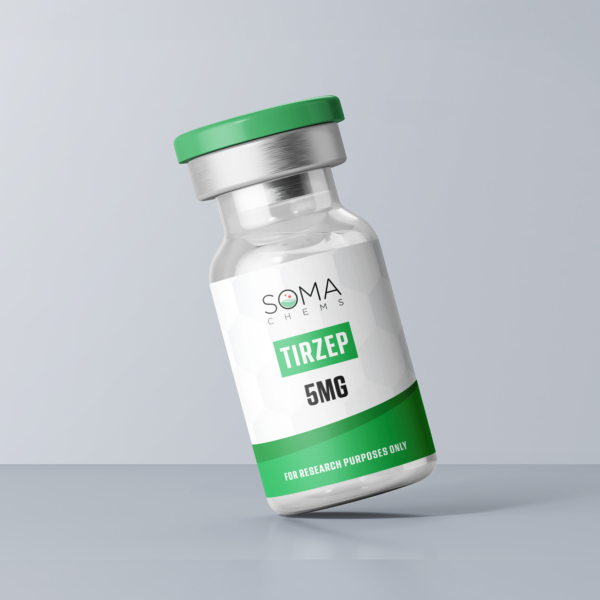
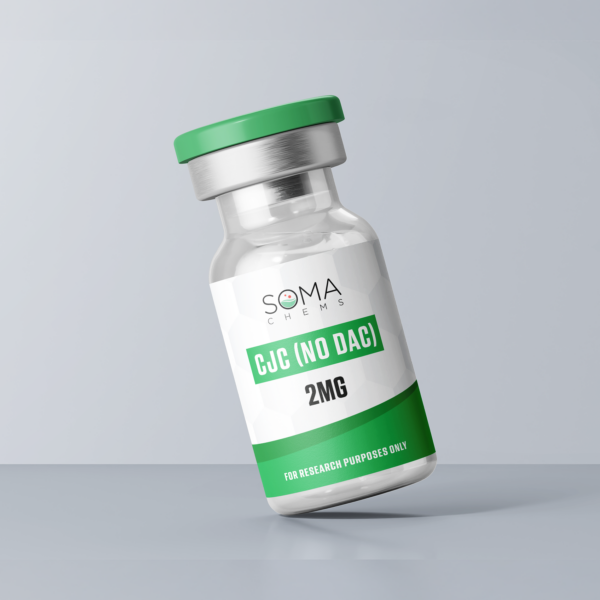
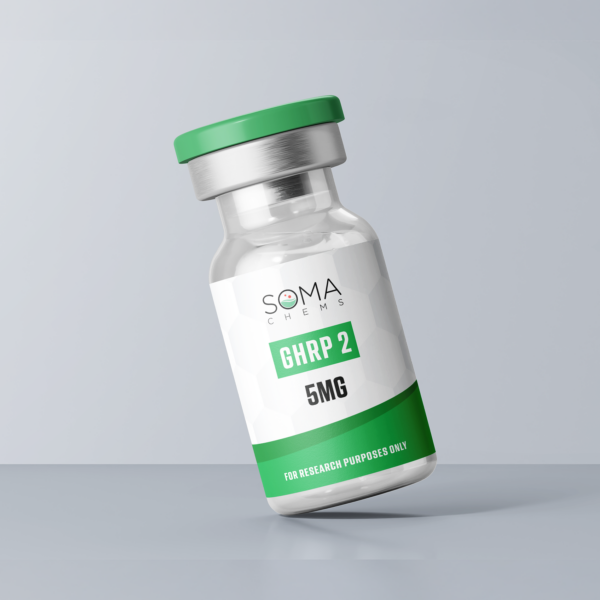
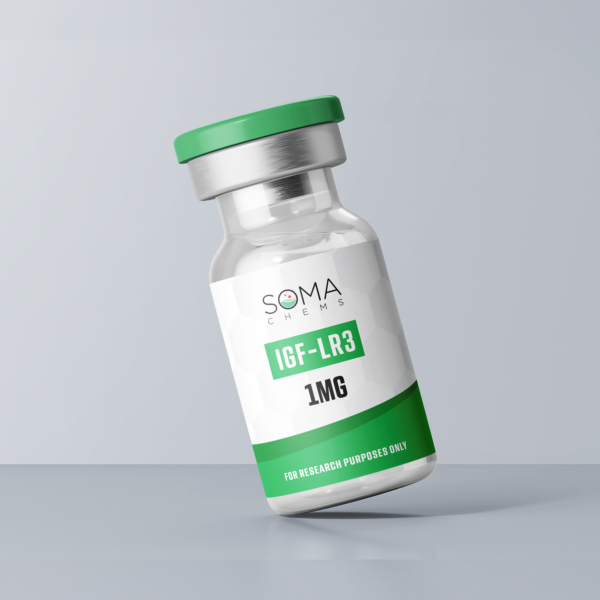
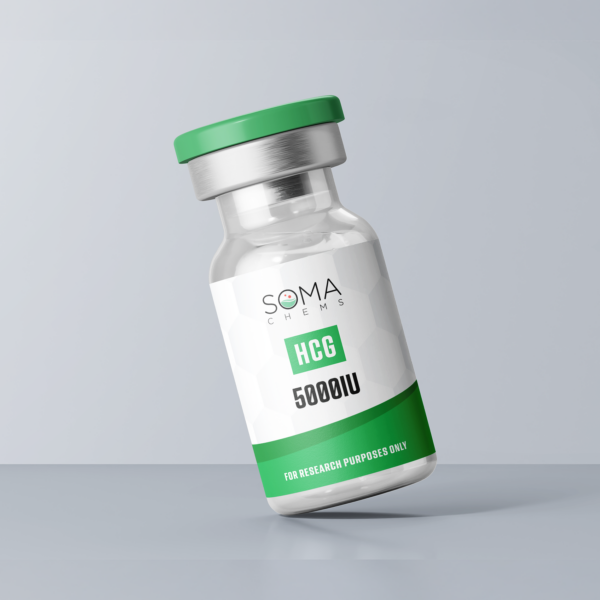
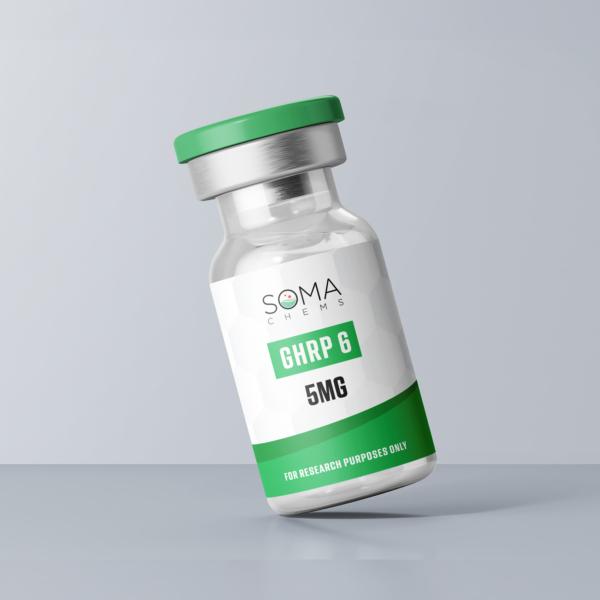
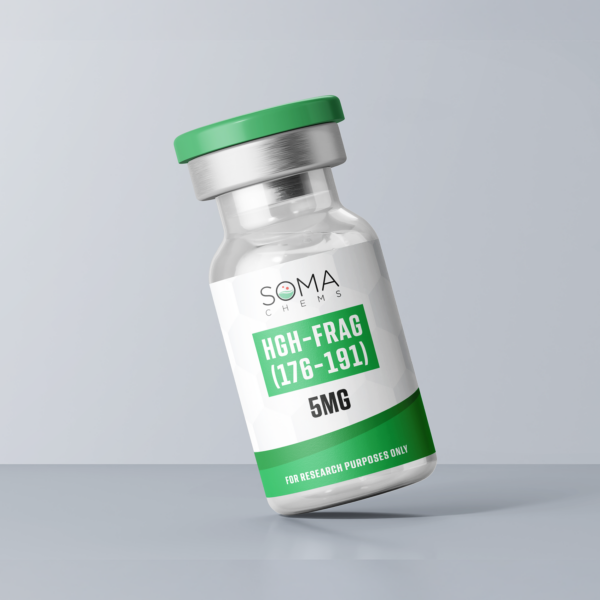
Reviews
There are no reviews yet.